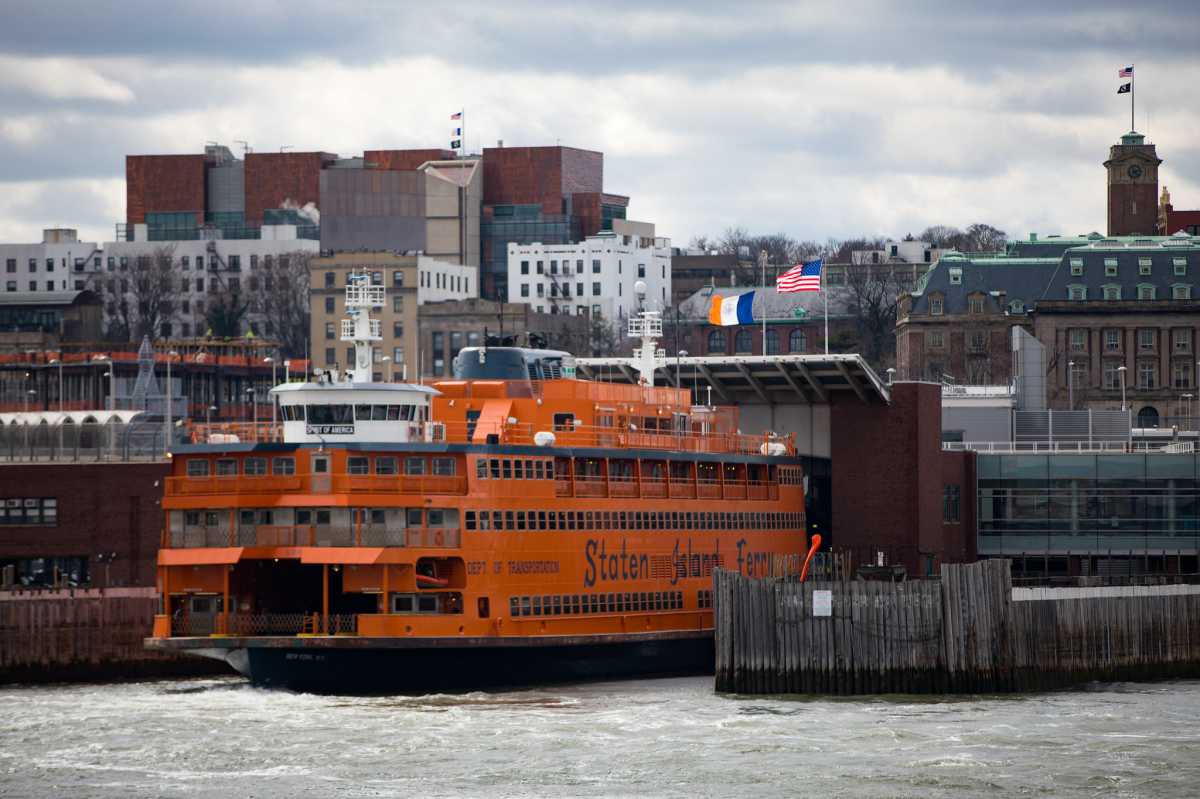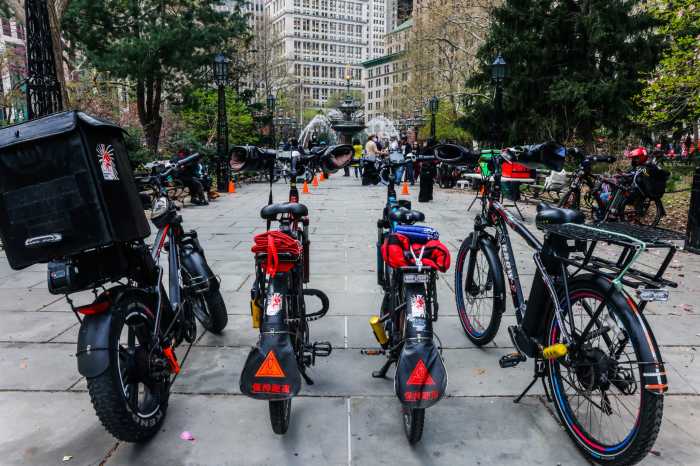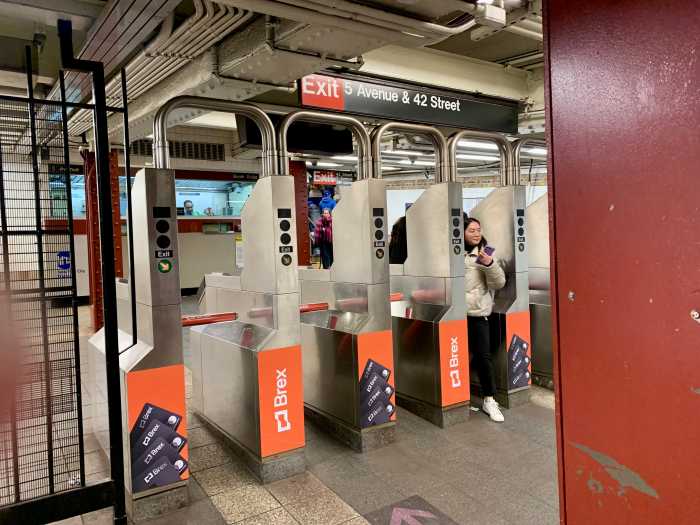Staten Island Ferry workers have finally reached a new labor deal with the city, after going 13 years without a contract and seeing their wages stagnate.
Mayor Eric Adams and the Marine Engineers’ Beneficial Association (MEBA), the union representing 150 Staten Island Ferry crew members, fittingly announced the new contract on Labor Day at the ferry terminal in St. George.
“All of us are proud of this moment. It was a long time, you went through several administrations and you had very difficult moments,” the mayor said. “We wanted to get this deal done. I was very clear, bring the ferry to the goddamn dock.”
The new contract, which was ratified by union members on Friday, delivers sixteen years’ worth of raises to the captains, assistant captains, and mates represented by MEBA. The raises apply retroactively going back to 2012, and will remain in force until the contract expires in 2027. Engineers, meanwhile, will be paid prevailing wages as laid out by an April ruling from the City Comptroller’s office.
In effect, Staten Island Ferry workers will go from the nation’s lowest-paid ferry workers to the highest, said the head of MEBA, Roland “Rex” Rexha.
Captains, whose pay capped out below $71,000 in 2010, will see their top salaries rise to $180,000. Chief marine engineers’ top pay will increase from $69,000 to $180,281. Marine engineers will go from $64,000 to $145,000, assistant captains will bump from $63,000 to $138,000, and mates will get raises from $58,000 to $124,400.
MEBA members will also start working 40-hour workweeks, up from 32, which officials say will alleviate the labor shortages that have scrambled ferry service in recent years. Members will also get to start taking vacation in one-week blocks instead of only two-week periods. The contract takes effect next month.
“Throughout the two previous administrations, it often felt like City Hall and the MEBA were sailing on separate courses. However, today, we’ve proudly announced that we’ve finally brought this contract to dock,” said Rexha. “I am immensely proud of my membership for speaking up and refusing to accept anything less than what they deserve. They understand their value, they excel at their jobs, and they refuse to settle for mediocrity.”
The contract will cost the city $103 million, though the mayor noted that the administration is “not just giving folks money, they earned this already.”
“I don’t know how these guys made it 13 years without a salary increase. So we are paying them for what we held up on,” said Hizzoner. “College tuition doesn’t wait, rent doesn’t wait, mortgage doesn’t wait, food doesn’t wait.”
Ferry crew members have worked without a contract since their last one expired in 2010 during the Bloomberg administration, and they have not gotten raises in the intervening 13 years.
That has made it hard to retain skilled crew and recruit new staff to work on the free orange vessels, as better pay can be found in the private sector or with other government agencies. And it’s caused the reliability of ferry service to plummet amid constant staffing shortages, frustrating Staten Islanders who already have some of the nation’s longest commutes.
The union turned down a number of offers from the administration that would provide raises, but still keep Staten Island Ferry workers at wages below the industry standard, MEBA contended.
Last year, the mayor accused ferry crew members of staging an illegal sick-out that significantly disrupted ferry service, a contention denied by the union, which said it was simply a symptom of the staffing crisis.
Read more: MTA Explores Eco-Friendly Cooling for Hot Subway Stations






































